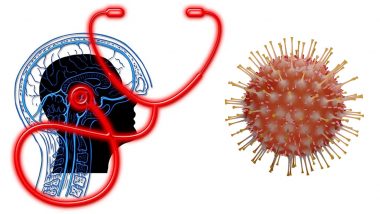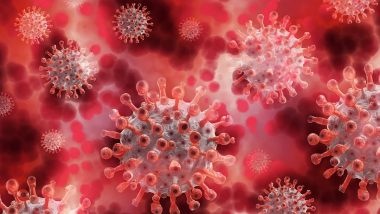Melbourne [Australia], September 27: In a recent study, neuroscientists and clinicians examined the potential link between COVID-19 and increased risk of Parkinson's disease, with an aim to find measures to get ahead of the curve.
The study has been published in the Journal of Parkinson's Disease.
Also Read | CCMB Scientists Launch Study to Check Whether Coronavirus Can Travel Through Air, If So How Far.
"Although scientists are still learning how the SARS-CoV-2 virus is able to invade the brain and central nervous system, the fact that it's getting in there is clear. Our best understanding is that the virus can cause insult to brain cells, with potential for neurodegeneration to follow on from there," said Professor Kevin Barnham from the Florey Institute of Neuroscience & Mental Health.
In a review paper published today, researchers put a spotlight on the potential long-term neurological consequences of COVID-19, dubbing it the 'silent wave'. They are calling for urgent action to be taken to have available more accurate diagnostic tools to identify neurodegeneration early on and a long-term monitoring approach for people who have been infected with the SARS-CoV-2 virus.
Also Read | Sidharth Malhotra and Kiara Advani Go Out on a Drive Together Sparking Dating Rumours Once Again (See Pics).
The researchers report that neurological symptoms in people infected with the virus have ranged from severe, such as brain hypoxia (lack of oxygen), to more common symptoms such as loss of smell. "We found that loss of smell or reduced smell was on average reported in three out of four people infected with the SARS-CoV-2 virus. While on the surface this symptom can appear as little cause for concern, it actually tells us a lot about what's happening on the inside and that is that there's acute inflammation in the olfactory system responsible for smell," explained Florey researcher Leah Beauchamp. Inflammation is understood to play a major role in the pathogenesis of neurogenerative disease and has been particularly well studied in Parkinson's. Further research into these illnesses may prove critical for future impacts of SARS-CoV-2.
"We believe that the loss of smell presents a new way forward in detecting someone's risk of developing Parkinson's disease early. Armed with the knowledge that loss of smell presents in around 90% of people in the early stages of Parkinson's disease and a decade ahead of motor symptoms, we feel we are on the right track," added Ms Beauchamp.
Clinical diagnosis of Parkinson's disease currently relies on the presentation of motor dysfunction, but research shows that by this time 50-70% of dopamine cell loss in the brain has already occurred. "By waiting until this stage of Parkinson's disease to diagnose and treat, you've already missed the window for neuroprotective therapies to have their intended effect. We are talking about an insidious disease affecting 80,000 people in Australia, which is set to double by 2040 before even considering the potential consequences of COVID, and we currently have no available disease-modifying therapies," said Professor Barnham.
The researchers hope to establish a simple, cost-effective screening protocol aiming to identify people in the community at risk of developing Parkinson's, or who are in early stages of the disease, at a time when therapies have the greatest potential to prevent the onset of motor dysfunction. They plan to put the proposal forward for funding from the Australian Government's Medical Research Future Funding scheme.
Additionally, the team have developed two neuroprotective therapies currently under investigation and have identified a cohort of subjects who are ideally suited to study the treatments. Through their research, they gained new evidence that people with REM sleep behaviour disorder have a higher predisposition to go on to develop Parkinson's disease.
Parkinson's disease is a significant economic burden costing the Australian economy in excess of USD 10 billion a year. "We have to shift community thinking that Parkinson's not a disease of old age. As we've been hearing time and time again, the coronavirus does not discriminate - and neither does Parkinson's," said Professor Barnham.
"We can take insight from the neurological consequences that followed the Spanish Flu pandemic in 1918 where the risk of developing Parkinson's disease increased two to three-fold. Given that the world's population has been hit again by a viral pandemic, it is very worrying indeed to consider the potential global increase of neurological diseases that could unfold down the track."He added, "The world was caught off guard the first time, but it doesn't need to be again. We now know what needs to be done. Alongside a strategised public health approach, tools for early diagnosis and better treatments are going to be key." (ANI)
(This is an unedited and auto-generated story from Syndicated News feed, LatestLY Staff may not have modified or edited the content body)













 Quickly
Quickly



















